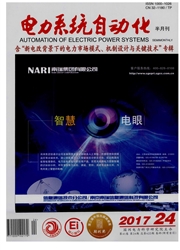

 中文摘要:
中文摘要:
能源安全、环境保护和气候变化问题关系着国民经济的发展,在低碳发展的约束下,煤电能源供应链中的企业如何设计碳管理机制,走出发展困境是当下亟待解决的问题。利用PEST-SWOT分析和Porter's Five Forces(波特五力分析),针对中国煤电能源供应链碳管理的环境现状和战略问题进行研究。设计适合中国煤电能源供应链碳管理的协同机制,并构建评价指标体系ANP模型。首先从政策、经济、社会和技术层面,明确了中国煤电能源供应链碳管理的内部优势、内部劣势、外部机会和外部威胁;然后基于低碳运营能力、低碳供给能力和低碳需求水平,说明碳管理竞争关系;最后指出协同机制的实施要根据企业的优势度排序,相应分配供应链碳管理的权利和义务。
 英文摘要:
英文摘要:
Energy security,environmental conservation and climate change are related to the development of national economy.Under the constraints of low-carbon development,how to design mechanisms to overcome the development dilemma is an urgent problem to be solved for companies in electric-energy supply chain carbon management.PEST-SWOT analysis and Porter's Five Forces analysis are used to discuss strategic issues on electric-energy supply chain carbon management in China.Collaborative mechanism is designed and an ANP model for evaluation is built.Firstly,the internal strength and weaknesses,external opportunities and threats are determined from the political,economic,social and technological aspects.Secondly,based on the lowcarbon capability of operation and level of supply and demand,the competitive relation in carbon management is determined.Thirdly,according to the priorities of each company,collaborative mechanism should function with the corresponding allocation of rights and obligations in supply chain carbon management.
 同期刊论文项目
同期刊论文项目
 同项目期刊论文
同项目期刊论文
 Photovoltaic power generation in China: Development potential, benefits of energy conservation and e
Photovoltaic power generation in China: Development potential, benefits of energy conservation and e Examining Economic and Environmental Impacts of Differentiated Pricing on the Energy-Intensive Indus
Examining Economic and Environmental Impacts of Differentiated Pricing on the Energy-Intensive Indus 期刊信息
期刊信息
